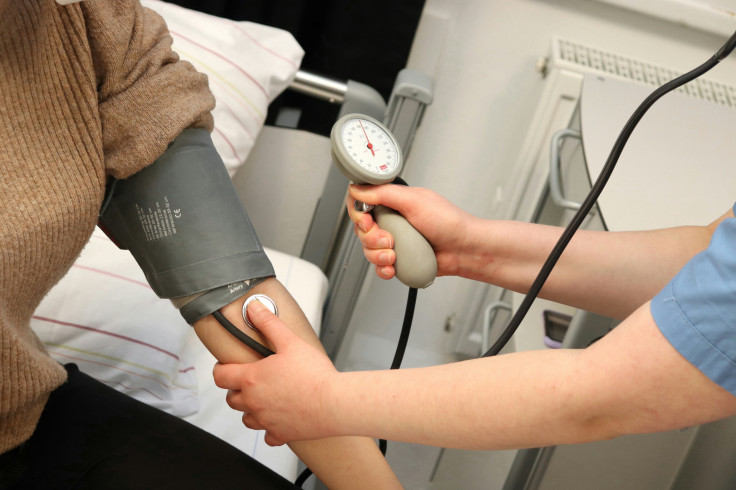Why Blood Pressure Spikes at Night? Understanding Nocturnal Hypertension and What to Do
Blood pressure naturally fluctuates throughout the day, typically dipping at night during sleep. However, some individuals experience nocturnal hypertension, where blood pressure rises instead of falling. These blood pressure spikes at night can be more harmful than daytime hypertension because they are often silent and go unnoticed, yet they significantly increase the risk of heart attack, stroke, and kidney disease.
Nocturnal hypertension can occur in otherwise healthy adults or in individuals with known cardiovascular risks. Understanding the underlying causes, symptoms, and treatment options is crucial for preventing long-term complications. By recognizing patterns in nighttime blood pressure changes, patients and healthcare providers can tailor strategies to reduce cardiovascular risk and improve overall health.
Causes and Symptoms of Nighttime Blood Pressure Spikes
Several factors contribute to nocturnal hypertension, ranging from lifestyle habits to medical conditions. Identifying these causes is key to managing and preventing blood pressure spikes at night.
Common Causes
- Sleep Apnea: Obstructive sleep apnea causes intermittent drops in oxygen levels during sleep, triggering the sympathetic nervous system and leading to nighttime blood pressure elevations. According to the American Heart Association, sleep apnea is strongly associated with nocturnal hypertension and can exacerbate cardiovascular risk if untreated.
- Kidney Disease: Chronic kidney disease can impair sodium and fluid balance, contributing to sustained nighttime blood pressure increases.
- Diabetes: Individuals with diabetes are prone to autonomic dysfunction, which can interfere with the normal nocturnal dip in blood pressure.
- High Salt Intake and Sedentary Lifestyle: Diets high in sodium and lack of physical activity increase the likelihood of elevated nighttime blood pressure.
- Stress and Hormonal Factors: Chronic stress and imbalances in hormones such as cortisol may elevate nocturnal blood pressure.
Symptoms to Watch For
Nocturnal hypertension is often asymptomatic, but some individuals may notice subtle signs, including:
- Frequent nighttime urination (nocturia)
- Disrupted sleep or insomnia
- Loud snoring or gasping during sleep
- Morning headaches or dizziness
According to a study published by the National Institutes of Health, these symptoms, particularly when combined with daytime hypertension, warrant evaluation with ambulatory blood pressure monitoring to detect nighttime spikes.
Managing and Preventing Blood Pressure Spikes at Night
Lifestyle Modifications
Managing blood pressure spikes at night often starts with lifestyle changes:
- Regular Exercise: Engaging in moderate-intensity aerobic activity helps improve blood vessel health and lowers overall blood pressure.
- Salt Reduction: Limiting sodium intake helps prevent fluid retention and nighttime elevations.
- Weight Management: Maintaining a healthy weight reduces strain on the heart and kidneys.
- Stress Control: Mindfulness, meditation, and relaxation techniques can help normalize sympathetic nervous system activity during sleep.
- Improved Sleep Quality: Addressing sleep apnea with CPAP therapy, avoiding late caffeine, and establishing consistent sleep schedules can restore normal nocturnal blood pressure patterns.
Medical Interventions
When lifestyle measures are insufficient, medical treatment may be necessary:
- Antihypertensive Medications: The timing of medications can be adjusted to optimize their effect during the nighttime. For example, some ACE inhibitors or ARBs may be taken in the evening to counter nocturnal elevations.
- Ambulatory Blood Pressure Monitoring (ABPM): This tool provides 24-hour readings to detect hidden nocturnal spikes. According to Mayo Clinic research, ABPM is the gold standard for diagnosing nocturnal hypertension and tailoring treatment plans.
Conclusion
Nocturnal hypertension is a serious condition that often goes undetected but poses significant cardiovascular risks. Understanding the causes—from sleep apnea and kidney disease to stress and dietary factors—helps individuals recognize potential triggers of nighttime blood pressure spikes. Symptoms like frequent nighttime urination, snoring, and morning headaches should prompt evaluation with ambulatory monitoring.
Management involves a combination of lifestyle modifications, improved sleep, stress control, and, when necessary, appropriately timed antihypertensive medications. Early detection and proactive treatment can prevent long-term complications, reduce cardiovascular risk, and improve overall health. By staying vigilant and consulting healthcare professionals, patients can keep blood pressure spikes at night under control and protect their heart, kidneys, and brain from the consequences of untreated nocturnal hypertension.
Frequently Asked Questions
1. Can stress cause nighttime blood pressure spikes?
Yes. Chronic stress can activate the sympathetic nervous system, increasing blood pressure even during sleep. Techniques such as meditation, deep breathing, and counseling can help mitigate this effect.
2. How is nocturnal hypertension diagnosed?
Nocturnal hypertension is most accurately detected using ambulatory blood pressure monitoring, which records blood pressure at regular intervals over 24 hours, including during sleep.
3. What are the risks of untreated nocturnal hypertension?
Untreated nocturnal hypertension significantly increases the risk of heart attack, stroke, kidney disease, and overall cardiovascular mortality. Nighttime blood pressure is a stronger predictor of cardiovascular events than daytime readings.
4. Can lifestyle changes alone normalize nighttime blood pressure?
For some individuals, lifestyle changes such as reducing sodium, exercising regularly, and improving sleep can lower nighttime blood pressure. However, others may require medication to achieve optimal control.
Published by Medicaldaily.com




























